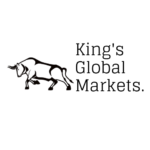
By Advait Lath, BA Economics student and Researcher at KGM Economics Institute
Shortages. Deaths. Panic. Optimism. The COVID-19 pandemic continues to be a prime concern for governments and policymakers worldwide. This unprecedented global crisis has called for a need to open up borders to ensure the free flow of goods and services (especially essential ones), that would avoid bottlenecks and supply shocks. Governments have extensively employed monetary and fiscal tools such as borrowing heavily or slashing interest rates, but the array of trade policies utilised has been binary. Few have opted for liberal measures, while others have leaned towards protectionism. Increased tensions have come to the fore in trade actions, with hostilities on the diplomatic front transforming themselves into ‘trade wars’. The complexity of global supply chains establishes that there can be no room for restrictions of the supply of essential goods, especially during the pandemic.
A prime example of such bilateral tensions came in April 2020, when the US administration looked to ban American mask producer 3M from exporting high-end N-95 respirators to the Canadian and Latin American markets. When the adverse humanitarian implications of the ban were highlighted by the supplier, it was altered, so that 3M would import 167 million masks, from its factory in China. A hitch arose – The factory was on Chinese soil, and as a result, was subject to Chinese policies. To make matters worse, China moved to cast stringent measures of quality controls on its exports of Personal and Protective Equipment (PPE), causing uproar in the USA, global shortages and strife for those frontline workers who required the equipment. In effect, any protectionist ‘Beggar-thy-neighbor’ policies in times of global turmoil are somewhat shortsighted in terms of global turmoil, with multilateral cooperation being the need of the hour.
Few countries have the capacity to engage in the domestic production of medical supplies and are left to engage in trade on the open market. Consequently, the distributional impacts of export restrictions by supplying nations are detrimental to global trade. This has been highlighted during the pandemic, especially in the supply of essential commodities, such as medical equipment. As export restrictions introduce a reduced supply of essential goods, those countries that cannot engage in bidding wars for these goods are left marginalized. This is especially true of developing nations that do not have a robust health system or industry. Facing high budget constraints and a paucity of health professionals, these countries rack up huge health bills. With little or no access to the resources provided by advanced nations, these countries often have to make do with ‘lemons’, or inferior products. The failure of the PPE markets worldwide has been the byproduct of export restrictions.
The concentration of essential commodity production units, within some exporting nations, is an immediate concern. The World Health Organization COVID-19 Disease Community Package (DCP) classifies 17 products that are critical in the global efforts to stem the virus. These items range from treatment enzymes, hygiene products that include masks and sanitisers, PPE, to case management products such as oxygen respirators. Developing countries, who are dependent on imports in these product categories, are at the mercy of export policy. The export share held by the top 5 exporters of such equipment (EU, USA, Japan, South Korea, and China) to 20 developing countries with the highest number of COVID-19 cases was a staggering 80%. The exporter share for case management products to these countries stood at a whopping 90% (See Fig.1). A net importer remains heavily dependent on foreign suppliers for the supply of essential goods. Any export restriction by dominant exporters would incontrovertibly lead to domestic shortages and increased prices of essentials.

(Fig. 1: Main sources of critical COVID-19 products for the 20 most-affected developing countries, as a share of exports by exporters. Source: Voxeu.org)
A World Trade Organization (WTO) paper estimates that total world trade declined by 14 per cent in 2020, year-on-year. Contrastingly, imports and exports of medical goods increased by 16 per cent, reaching US$ 1,139 billion in value. The trade for critical products increased by 29% in 2020, with Chinese exports of COVID-19-critical products tripling, based on the year-on-year, first half of the year, data from US$ 18 billion to US$ 55 billion. Leading importers of COVID-19-critical products registered double-digit import growth compared to 2019, including 62 per cent in France and 52 per cent in Italy. The leap in trade volume is illustrated in Fig. 2.

(Fig. 2: Share of Global trade of the Top 10 exporters and importers (Respectively, from top to bottom) of goods critical in combating COVID-19. Source: WTO.org.)
As global economies open up, and vaccination runs make the news, it remains imperative that global supply chains remain accommodating in scope, for us to weather the storm safely. The economic ramifications of the pandemic are myriad in extent, and the need for open, multilateral cooperative action is a must to sustain economic recovery. A prospective solution to achieve recovery is to keep supply routes open through cooperative action, which includes transparency and disciplines on export restrictions, that conform to global trade agreements. Exemplar action to keep supply chains open by the seven-nation group led by New Zealand and Singapore is illustrative of such initiatives. Stakeholder welfare is critical for policymakers to consider before definitive action is taken.
Exclusive Offer: Get £100 off your Summer Internship Experience at Amplify Trading by clicking here or using our unique discount code at the checkout: MSAmplifySummer2021. Participants graduate from the course with a Diploma from the London Institute of Banking & Finance. For more information about the course, click here.

King's Global Markets - KGM
King’s Global Markets is a community of students dedicated to the advanced study and application of global financial markets, economics and global business.